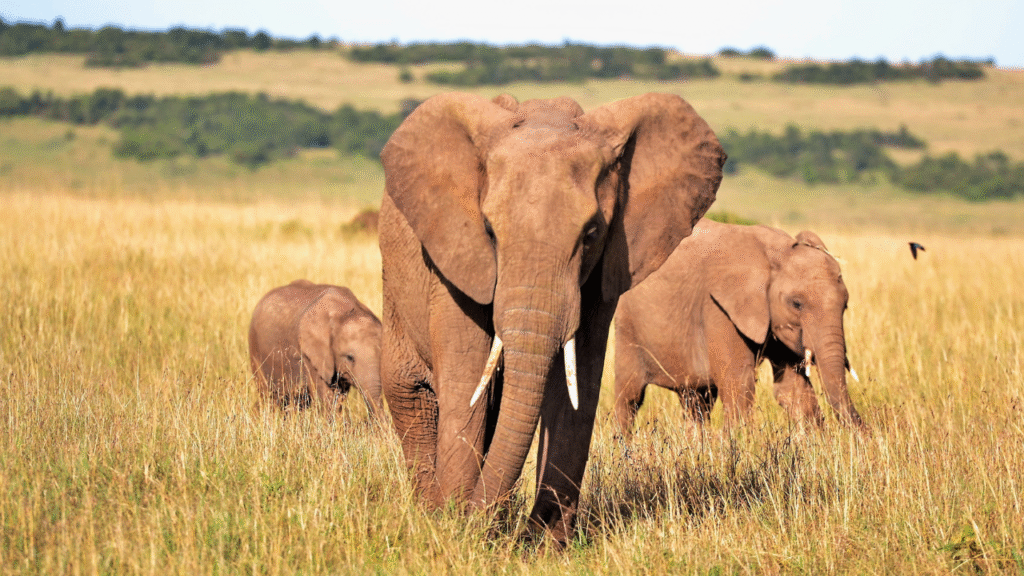Elephants in Asian and African Cultures: Symbolism and Beliefs Across Continents
Elephants are not only the largest land animals on Earth—they are also deeply symbolic creatures in many cultures. In both Asia and Africa, elephants are connected to spirituality, strength, and tradition, but the meaning and role they play differ across regions. This article explores how elephants are seen in the mythologies, religions, and customs of Asia and Africa, highlighting their lasting influence on human culture.

Elephants in Asian Culture: Divine, Lucky, and Honored
India: The Elephant-Headed God and Royal Beast
In India, elephants are sacred. The Hindu god Ganesha, with his elephant head, is one of the most loved deities, known as the remover of obstacles and the god of success and intellect. Temples often house real elephants as part of religious rituals.
- Ganesha is worshipped in homes and temples across the country.
- Elephants were used in ancient Indian armies and royal courts.
- In Indian folklore, elephants are wise, calm, and noble.
Thailand: Symbol of Peace, Power, and Prestige
In Thailand, the white elephant holds royal status. Considered a symbol of purity and power, white elephants are associated with the monarchy. Historically, kings who owned white elephants were believed to be divinely blessed.
- Elephants are featured in Thai festivals, such as the Surin Elephant Round-Up.
- The elephant once appeared on the national flag of Thailand.
- Buddhism in Thailand sees elephants as sacred animals of protection.
Sri Lanka and Southeast Asia: Carriers of the Sacred
In countries like Sri Lanka and Myanmar, elephants are part of Buddhist traditions. During the Esala Perahera festival in Sri Lanka, elephants carry sacred relics of Buddha in grand, colorful processions, showing how closely linked they are to faith and celebration.
Elephants in African Culture: Wise Ancestors and Tribal Guardians
Spiritual Messengers and Family Symbols
Across Africa, elephants are not gods, but they are often viewed as spiritual creatures connected to wisdom, memory, and family. In many tribes, elephants are believed to represent the souls of ancestors or are seen as symbols of leadership and authority.
- In Ghana, elephants symbolize royalty and respect.
- Among the Yoruba people, elephants are tied to the concept of divine strength.
- In many African stories, elephants are wise leaders who guide the community.
Symbols in Art, Dance, and Myth
Elephant imagery is common in tribal masks, fabrics, and ceremonial dances. Though not always worshipped, elephants are revered and their symbolism is deeply respected.
- In Mali and Burkina Faso, elephants appear in folktales as peacekeepers.
- The Zulu associate elephants with patience and honor.
- Elephant tusks and carvings are used in rituals and storytelling.
What Elephants Represent: Shared Themes, Unique Meanings
Despite cultural differences, both Asia and Africa see elephants as:
- Symbols of power and wisdom
- Guardians of tradition
- Connectors to the divine or spiritual world
However, Asia leans more toward religious worship, especially through Hindu and Buddhist beliefs, while Africa emphasizes ancestral respect, leadership, and tribal identity.
Why Elephant Symbolism Matters Today
In both continents, elephants face threats from poaching, habitat loss, and human conflict. Understanding how deeply elephants are woven into the spiritual and cultural lives of people can help fuel conservation efforts that go beyond science—connecting hearts and traditions to the cause.
Conclusion: Two Cultures, One Reverence
Elephants in both Asian and African cultures are more than animals—they are symbols of heritage, belief, and meaning. Whether standing in temple courtyards in India or roaming the African savannah as symbols of leadership, elephants carry the weight of ancient stories, respect, and wisdom. Preserving them means preserving a part of who we are, across continents and cultures.








